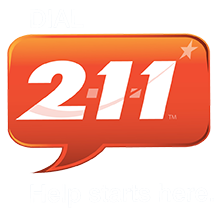
- ABOUT LOS
- DEPARTMENTS
- Administration and Finance
- Area Agency on Aging
- Active Aging Week
- Aging Advisory Council
- Aging Related Trainings
- Buncombe County Aging Plan
- Congregate Nutrition Meal Sites
- Cultural Change in Aging Network of WNC
- Dementia Friendly WNC
- Fall Prevention
- Family Caregiver Support Program
- Foster Grandparent Program
- HCCBG Services
- Health Promotion and Disease Prevention
- Living Healthy Program
- Local and Regional Planning
- Local Contact Agency (LCA)
- Operation Fan/Heat Relief
- Ombudsman Program
- Project C.A.R.E.
- Senior Centers
- Senior Community Services Employment Program (SCSEP)
- Senior Companion Program
- Senior Tar Heel Legislature
- SHIIP
- TRIAD
- Volunteer Advisory Council
- Economic and Community Development
- PLANNING
- Air Quality
- Agriculture and Forestry
- Clean Energy
- Clean Vehicles Coalition
- Comprehensive Economic Development Strategy
- GIS and Technical Services
- GroWNC
- Infrastructure and Community Development
- Land Use Planning
- Recycling Education
- Regional Brownfields Initiative
- Waste Reduction Partners (WRP)
- Water Resources
- West NGN Broadband
- ECD Past Projects
- TRANSPORTATION
- Blue Ridge Bike Plan
- French Broad River MPO
- GO Mountain Commuting
- Greenways Initiatives
- Land of Sky RPO
- Regional Transportation
- Mountain Area Workforce Development
- Transportation Resource Center
- CALENDAR
- MEMBER GOVERNMENTS
- Buncombe County
- City of Asheville
- Town of Biltmore Forest
- Town of Black Mountain
- Town of Montreat
- Town of Weaverville
- Town of Woodfin
- Henderson County
- Village of Flat Rock
- Town of Fletcher
- City of Hendersonville
- Town of Laurel Park
- Madison County
- Town of Hot Springs
- Town of Marshall
- Town of Mars Hill
- Transylvania County
- City of Brevard
- Town of Rosman
- RESOURCES
- OPPORTUNITIES
- CONTACT US

Cultural Change in Aging Network of WNC
Family Caregiver Support Program
Health Promotion and Disease Prevention
Local Contact Agency (LCA/CRC)
Senior Community Services Employment Program

Staff
Sherry Christenson
Aging Program Specialist

For free, confidential help any time of the day.
Operation Fan/Heat Relief
Operation Fan/Heat Relief is a special emergency assistance project to help elderly North Carolinians cope with summer heat. The project began in 1986. Funding assistance is available May through September of each year. This project is made possible by contributions from Duke Energy Foundation and Progress Energy Services Company, LLC.
Because many elderly citizens do not have electric fans or air conditioners, they are highly susceptible to life-threatening situations, which could be avoided if they were able to remain cool. The fans that are collected and purchased through “Operation Fan / Heat Relief” are given to those elderly citizens who have the greatest need for relief from the heat. The fans are distributed by one local provider in each county and are given as a gift – they are not to be loaned or retrieved at the end of the summer.
In 2012, donations totaled $7,271 and with these funds, 354 fans and 21 air conditioners were purchased and distributed in Buncombe, Henderson, Madison and Transylvania counties. The organizations receiving contracts to provide fans and air conditioners in our region are:
Fan/Heat Relief Providers:
| County | Organization | Phone Number |
| Buncombe | Council on Aging of Buncombe County, Inc | 828.277.8288 |
| Henderson | Council on Aging for Henderson County | 828.692.4203 |
| Madison | Madison County Department of Community Services | 828.649.2722 |
| Transylvania | Western Carolina Community Action (WCCA) | 828.884.3219 |
Hot Weather Tips for Seniors
Talk with your doctor and be aware of the medications you take and know for example that painkillers can reduce awareness of the heat and diuretics, which promote fluid loss, can lead to dehydration more often during hot weather. In addition to using electric fans, the following tips should be observed to reduce heat-related problems:
- Cool off by taking baths or showers or placing ice bags or wet towels on the body.
- Stay out of direct sunlight, put shades over the windows and use cross-ventilation and fans to cool rooms.
- Wear lightweight, light-colored, loose-fitting clothing that permits sweat to evaporate.
- Drink plenty of liquids such as water, fruit or vegetable juices and iced tea to replace the fluids lost by sweating. As a person ages, thirst declines. Limit intake of alcoholic beverages or fluids that have too much salt, since salt can complicate existing medical problems, such as high blood pressure.
- Eat small meals and eat more often and avoid foods that are high in protein, which increases metabolic (body) heat.
- Keep you medicines in a cool dry place.
- Check up on friends or neighbors who live alone.
- This can also be a good time to join your local senior center or take advantage of buildings made accessible to seniors during excessive heat. Your community’s public information office can be contacted for additional information.
- Take the heat seriously, and do not ignore danger signs like nausea, dizziness or lightheadedness, fatigue, confusion, labored breathing, chest discomfort, and rapid or erratic pulse. They can all be signs of trouble. Get to a cool place, drink cool water slowly and seek medical help if conditions don’t improve.